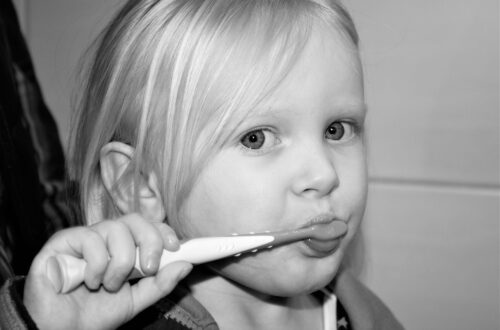
Parenting by Example – How to be a Role Model for Your Children
The importance of parenting by example is often denied in the tongue-in-cheek adage, ‘ Do as I say, not as I do.”
Of course, this never works. Children are social learners. They copy the behaviour they see demonstrated, rather than follow verbal instructions.
As a parent, this can be hard to watch. It may feel like your children’s behaviour is a mirror, reflecting all of you. The good and the bad, from behavioural habits to vocal tics.
Children are observational learners
There are multiple theories exploring how children learn. Social learning theory highlights the important role that observation of other people plays in a child’s learning journey.
It isn’t always obvious that your children are watching you. The truth is, they are often more tuned in than they appear to be. Therefore, your behaviours and attitudes can shape how your children interact with others and the world around them.
This observation is not a passive process. As children watch, they are cognitively engaged. They won’t only see the behaviours that those around them exhibit, but also the consequences of those behaviours. They will then make certain conclusions about which behaviours are both socially acceptable and beneficial.
It is worth noting that children do not learn from everyone equally. They are more likely to mimic the behaviours of those they already love and trust, over the behaviours of strangers. This means that one of the most powerful parenting tools is example.
If children learn through observation, it follows that your behaviour is a model for them. This can feel like a lot of pressure. After all, parents are imperfect people trying their best. Often, you will be sleep-deprived and working against a never-ending litany of demands.

Does parenting by example mean that you have to be perfect?
However hard you try, you will probably never get everything completely right. If you could, you would not be human. The good news is that you don’t need to be perfect to be a good teacher. Your children will also struggle to get things right. Frankly, if you never made mistakes, it would be completely demoralising for them. They need to learn how to deal with failure and to act when they mess up, which they will do.
Therefore, you do not need to be perfect. Rather, you should strive to demonstrate how to handle not being perfect, whilst still trying to be good.
If you model nothing else, let’s model kindness
There are a lot of important lessons you will want to teach our children as they grow. The most important, however, is kindness.
When I say kindness, I am not talking about the self-deprecating kindness where you try to grind yourself into nothing to appease the whims of everyone around you.
Kindness to others should be paired and balanced with self-kindness. To believe people are worth love and respect despite their flaws, mishaps and errors in judgment, you must be able to measure yourself by the same standard.
Instead, many of us self-impose impossible standards. You may struggle to believe that you are worth anything if you fall short.
When it comes to kindness versus impossible standards, our children will learn from us. So do not aspire to be perfect, aspire to be kind. You can still try your best, but accept failure with grace. Do things for the joy of doing them, rather than to prove yourself.
How to model boundaries
Kindness is important. Boundaries are important, too. Throughout our parenting, you should demonstrate examples of how to advocate for your own autonomy and space when needed. When they see you using the word ‘no’ with confidence and ease, your children will learn to use it, too.
How to correct your children in things you struggle with yourself?
It can feel hypocritical to correct your child’s behaviour, knowing that you struggle with the same flaw.
Perhaps you are a fussy eater, but want your children to try new foods. You may find it hard to control your temper, but understand the importance of teaching calm conflict resolution. Despite the importance of limiting screen time for little ones, mobile phone addiction amongst parents is rife. These are just a few examples. It is not unusual to fall short of the standards you would like to impart to our children. So, what is an imperfect parent to do?

How to handle not being perfect?
Your imperfections offer an opportunity to teach our children about growth. Especially with children who are old enough to be aware and have conversations about healthy habits.
It is important, however, to model pragmatism, not self-loathing or pity.
Say things like:
“I am going to try and eat more healthy foods so I can have more energy.”
Rather than:
“I’ve eaten junk the last few days. Now I feel gross. I am such a pig.”
As with many things in life, it is important to strike a balance. Understanding our flaws and wanting to improve on them is great. At times, you will fail, and that is okay.
There are a plethora of resources out there that can help us improve any area of our lives. Before you do this, however, you need to understand why you want to make the changes. Also, what will the improvement look like for you?
The “What” and the “Why”
In order to teach our children through our growth, you need to understand the “What” and “Why”.
Understanding the “Why” can help motivate us, but it can also define the “What”. That is, the measures that you take to implement the change. For example, if you want to eat better for energy, you will make different choices than you would to lose weight.
When you understand your motivation, you can plan how to move forward. Having a specific plan makes it easier to implement.
Saying you will be on your mobile phone less is hard to quantify. Instead, setting certain hours when your phone is on the side will make a real difference. Controlling your temper is noble. It is also hard to do without a plan for when you feel our blood start to boil.
So, you should know why you are choosing healthy behaviours. You should be clear on what those behaviours will look like in the day-to-day. This will help your children learn alongside you.
Final Note
Parenting by example does not mean that you need be perfect. At it’s heart it is making choices that are beneficial for our own health and well-being so that our children can learn to make healthy choices too.
Self-care is an important part of parenting by example, so remember to treat yourself with the same amount of kindness that you offer your children.
Refererences
Cherry, Kendra. “How Observational Learning Affects Behavior.” Verywell Mind, 27 Jan. 2025, www.verywellmind.com/what-is-observational-learning-2795402.
Mcleod, Saul. “Albert Bandura’s Social Learning Theory in Psychology.” Simply Psychology, 1 Feb. 2024, www.simplypsychology.org/bandura.html#What-is-Social-Learning-Theory.










